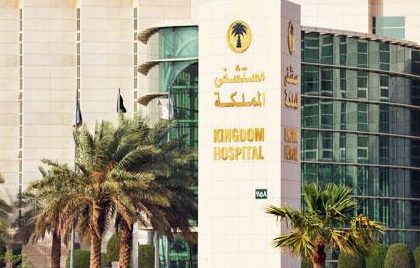
Riyadh, Oct 19: The Kingdom has won accolades from the World Health Organization for the medical services it provided to pilgrims during the Haj season.
Ezz Al-Din Al-Muhsini, WHO coordinator of elimination and eradication of infectious diseases, and coordinator of the eradication of polio, said: “The well-equipped hospitals designated to serve Haj pilgrims indeed surpassed many of the world-class hospitals.”
Al-Muhsini added: “Even though this is the first time that I have come to the holy sites, representing the WHO, I am actually amazed by the level of services provided by the Saudi Ministry of Health.
“I am particularly impressed by the highly equipped hospitals designated for serving pilgrims in the course of the pilgrimage, indeed surpassing many of the world-class hospitals,” Al-Muhsini said.
He said the fact the hospitals are equipped with high-tech devices seldom found in many international hospitals is evidence of the Kingdom’s medical superiority.
Al-Muhsini noted that such health services can’t be found in many world-class hospitals, both in terms of services provided to pilgrims, and the speed of accomplishment.
He cited as evidence a case he witnessed while returning from Muzdalifah. He also extended sincere thanks to the Saudi government for all such services provided for the pilgrims.
“We were expecting an impressive show given the momentous health progress the Kingdom is currently witnessing,” he said. “And this should come as no surprise, for the Kingdom is already known for its high morals in the health field, just as in all other fields and walks of life, among which health comes first and foremost. Truth to tell, this is something all Saudis should be proud of.”
Earlier, WHO also commended the overall health services provided by Saudi authorities to pilgrims this year, terming it as “the most comprehensive and integrated health care system.”
Fadila Sho’eib, WHO spokesperson, said that during her three-day stay in the Kingdom she witnessed a high level of efficiency in an effort to maintain pilgrims’ safety and comfort from arrival till departure. “The Saudi Ministry of Health offers health services that are far better than what most countries can boast of,” she said.





Comments
Add new comment